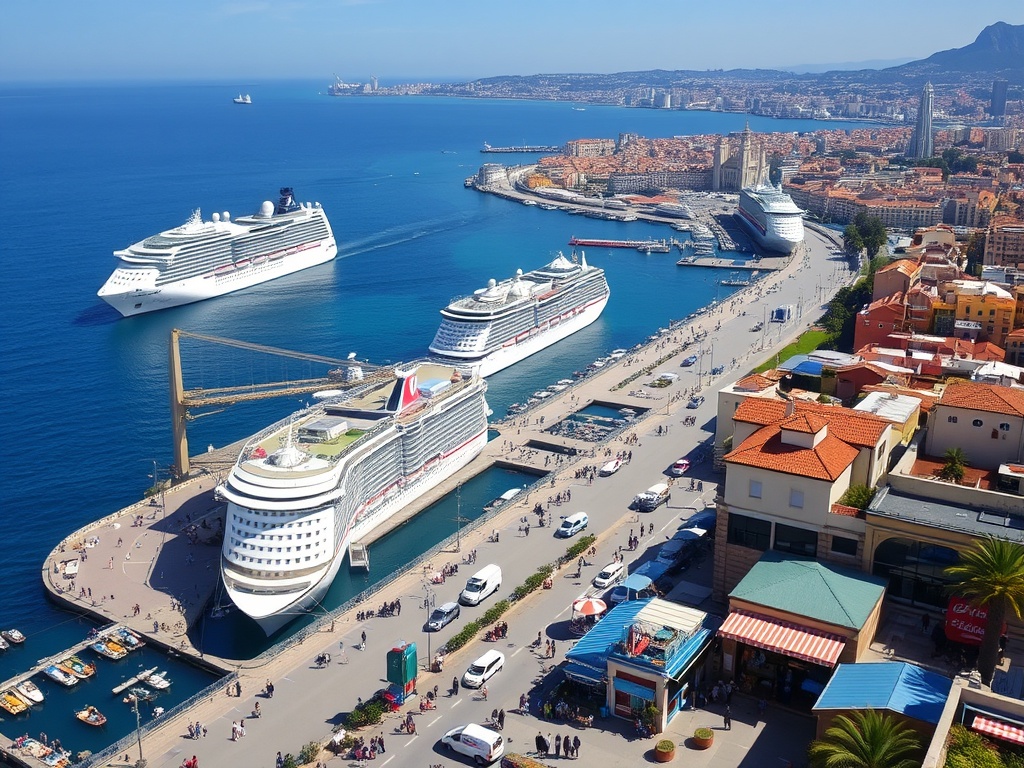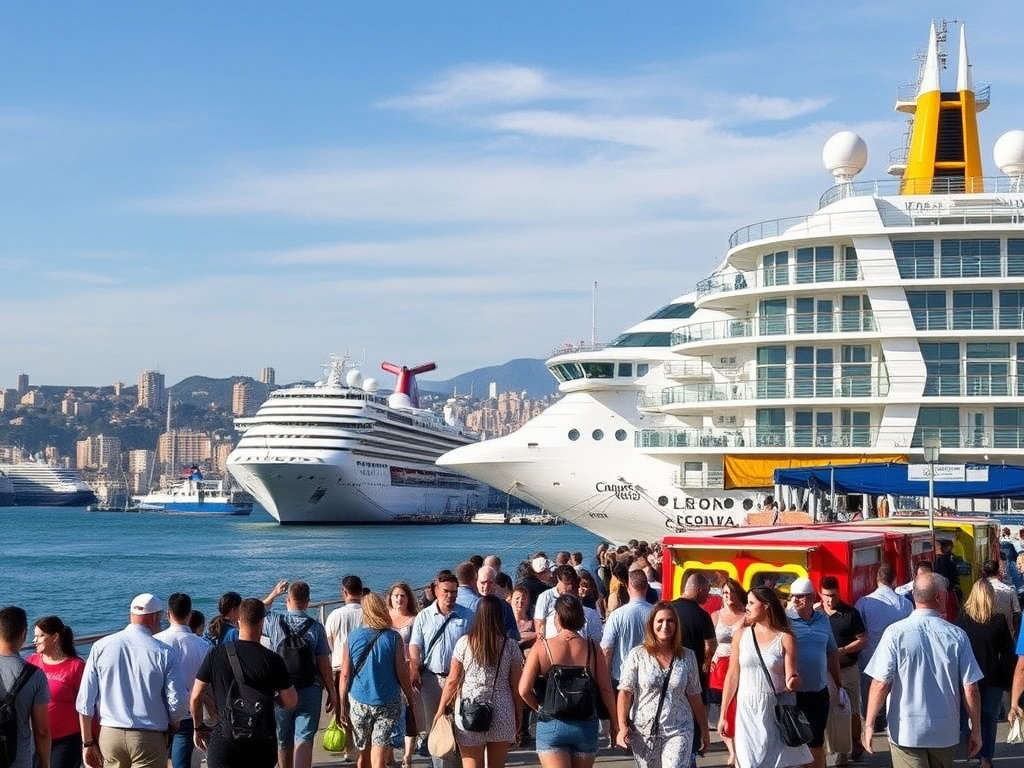Barcelona’s Cruise Tourism: A Small Piece of a Larger Puzzle

MADRID – The influx of cruise passengers arriving in Barcelona constitutes merely a small segment of the overall tourist population in the bustling city, according to Jose Alberto Carbonell, the director general of the Port of Barcelona. As the tourism sector rebounds following recent crackdowns, he emphasized that while the city faces challenges with overcrowding, cruise tourism is not the primary culprit.
“Cruises account for just 5 percent of the total tourism in Barcelona. I acknowledge that we have an issue with excessive tourism, but it’s important to recognize that cruises represent only a fraction and can be part of the solution,” Carbonell stated in an interview with La Vanguardia newspaper.
Last year, Barcelona welcomed approximately 15.4 million visitors, reflecting a slight decline of 0.2 percent compared to 2023, according to data from the Barcelona Tourism Observatory. This sector, which plays a crucial role in the city’s economy by contributing around 14 percent to its GDP, saw a remarkable growth rate of 10.5 percent year-on-year.
Recently, Laia Bonet, Barcelona council’s deputy mayor, revealed that the council has initiated discussions with the port authorities to potentially reduce the number of cruise ship terminals from seven to five. This move comes as part of broader efforts to manage the city’s tourism more sustainably.
- Currently, there are seven operational terminals for cruise liners.
- Last year, Barcelona recorded a historic 2.79 million cruise passengers, marking a 1 percent increase from 2023.
Carbonell expressed the port authorities’ willingness to engage in constructive dialogue with the city council, recalling that a previous agreement in 2018 successfully reduced the number of terminals from nine to seven.
In the midst of these discussions, various tourism stakeholders have cautioned against measures that could adversely affect the city’s financial landscape. Apartur, the association representing tourist flat owners in Barcelona, voiced concerns that the council’s proposal to eliminate 10,000 tourist flats by 2028 could lead to significant economic repercussions.
“This initiative poses serious challenges for the city. The mayor’s intention to expropriate properties from owners is troubling,” stated Quique Alcantará, president of Apartur, in an interview with The i Paper. “Barcelona cannot afford to lose nearly 40 percent of its tourist accommodation, which is vital for our economy.”
As the countdown begins for the Mobile World Congress, one of the most significant trade conferences globally, the city prepares to welcome around 100,000 delegates. Many of these attendees rely on tourist flats for accommodations in a city that boasts a population of 1.6 million.
Protests against tourist flats have erupted in various Spanish cities, with demonstrators arguing that the proliferation of short-term rentals drives up housing costs, making it increasingly difficult for locals to afford living in their own neighborhoods.
In an attempt to address the growing housing crisis while still promoting tourism, Spain’s left-wing government recently introduced several measures, including a 100 percent tax on property purchases made by non-EU buyers who are not residents of Spain.
Alberto Núñez Feijoó, the leader of the conservative opposition People’s Party, criticized the government’s housing strategy, advocating for alternative policies that would strengthen legal protections against squatters. Currently, Spain’s housing laws tend to favor renters, which can discourage property owners from offering their homes for rent.




